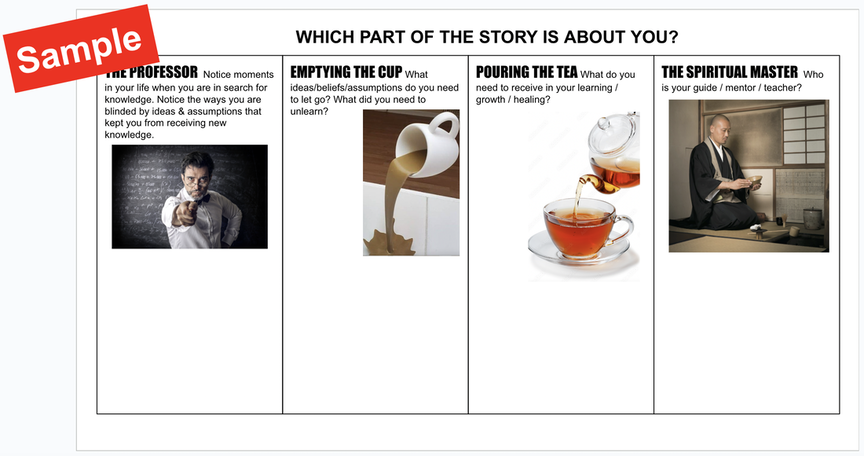INTRODUCTION
In many cultures around the world, especially in Asia, drinking tea is a very significant cultural practice. It is a way for people to connect with each other socially and spiritually. Zen Buddhism in Japan developed this practice as a tool for spiritual awakening. The practice of the Japanese tea ceremony requires undivided attention, a hyper focus into the present moment. To do that one has to keep one's mind open, like an empty tea cup. In order to receive, one must empty oneself. If one is already full, nothing can go in.
In many cultures around the world, especially in Asia, drinking tea is a very significant cultural practice. It is a way for people to connect with each other socially and spiritually. Zen Buddhism in Japan developed this practice as a tool for spiritual awakening. The practice of the Japanese tea ceremony requires undivided attention, a hyper focus into the present moment. To do that one has to keep one's mind open, like an empty tea cup. In order to receive, one must empty oneself. If one is already full, nothing can go in.

The Master and the Cup of Tea
(a Zen story)
A learned man once went to visit a Zen teacher to inquire about Zen. As the Zen teacher talked, the learned man frequently interrupted to express his own opinion about this or that. Finally, the Zen teacher stopped talking and began to serve tea to the learned man. He poured the cup full, then kept pouring until the cup overflowed.
“Stop,” said the learned man. “The cup is full, no more can be poured in.”
“Like this cup, you are full of your own opinions,” replied the Zen teacher. “If you do not first empty your cup, how can you taste my cup of tea?”
(a Zen story)
A learned man once went to visit a Zen teacher to inquire about Zen. As the Zen teacher talked, the learned man frequently interrupted to express his own opinion about this or that. Finally, the Zen teacher stopped talking and began to serve tea to the learned man. He poured the cup full, then kept pouring until the cup overflowed.
“Stop,” said the learned man. “The cup is full, no more can be poured in.”
“Like this cup, you are full of your own opinions,” replied the Zen teacher. “If you do not first empty your cup, how can you taste my cup of tea?”
REFLECTION QUESTIONS
- What did you find to be the most important part of the story? What resonated with you?
- What experiences have you had that is close to this story?
- Where do you find yourself in this story? Which part of the story is about you?
Guide for Facilitators of Spiritual Care Support Groups
|
|

